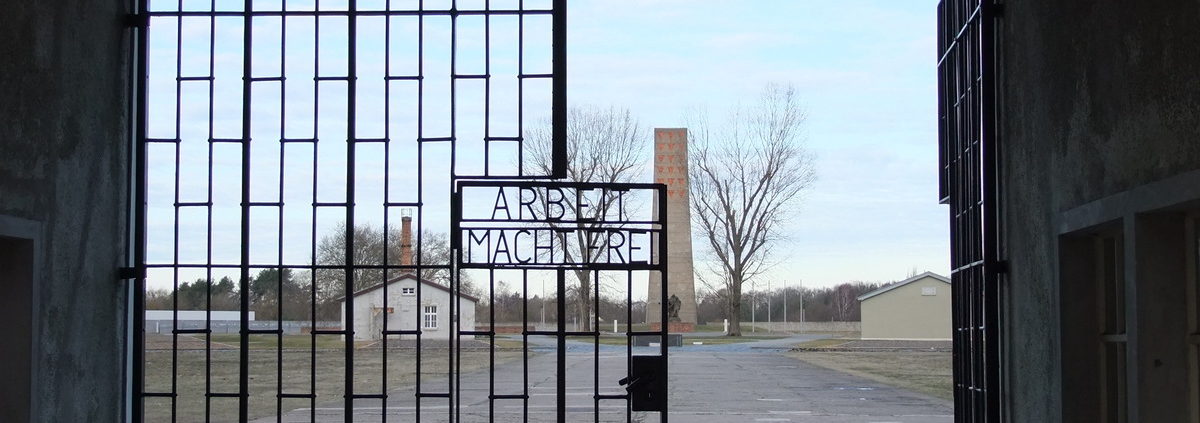‚Found Poems‘ des bilingualen Geschichtskurses im 10. Jahrgang
Der bilinguale Geschichtskurs des 10. Jahrgangs hat sich mit Tagebucheinträgen und Erinnerungen von Überlebenden des Holocaust beschäftigt, um nicht nur vom Holocaust zu wissen, sondern auch ein wenig zu begreifen, was er bedeutet haben mag.
Aus einem Tagebucheintrag von Hanna Lévy-Hass vom November 1944 sind ‚Found Poems‘ (gefundene Gedichte, vgl. https://de.wikipedia.org/wiki/Found_Poem) entstanden. Die Schüler*innen haben Satzteile, Wörter und ganze Sätze aus dem Tagebucheintrag gewählt, die sie besonders eindrücklich fanden, und diese als Gedicht zusammengestellt.
Die Gedichte geben einen Eindruck davon, was für die Schüler*innen die wichtigsten Aspekte des Originaltextes sind: Es sind kraftvolle, traurige, widerständige, hoffnungslose und hoffnungsvolle Gedichte, die sowohl den Schrecken der Konzentrationslager als auch die Kraft der menschlichen Seele zeigen und den Tagebucheintrag auf vielfältige Art neu interpretieren.
Text von Almuth Heck / Bild: A. Toll, 11. Jahrgang
Our existence has something cruel,
beastly about it.
Every human is reduced to zero
memories of beauty are erased
the brain is as if paralyzed.
We have not died, but we are dead.
Everything is expunged from my mind
in spite of everything, my work with the children continues.
It was decided in the camp that Saturdays will be devoted to children’s entertainment: singing solo or in chorus, small theatrical productions.
I collect and write down the material for these performances based on the children’s memories and my own.
So they begin to invent lines, to rhyme, to create texts –
I can clearly sense coming from the children’s soul.
They take my lead.
They get excited.
They want to live, they want to rejoice.
P.U., February 2021
Human dignity taken away
Our dignity was taken away from us.
Our dreams have disappeared.
Memories of beauty were erased.
Freedom was all we wanted.
We have not died, but we are dead.
We were killed inside.
We had nowhere to go.
Humans were killed like animals.
Death was no longer scary.
A.A., February 2021
I press my imagination, but nothing comes
we were still somewhat connected to our past lives
So, we begin to invent lines
to invoke our distant homeland, glorious and heroic
I would love to feel something pleasant, aesthetic
Maybe it was poetic
M.C., February 2021
Resistance to intolerance
Religious Intolerance,
cling desperately to every chance.
Existence has something cruel.
It was decided
We have not died, but we are dead.
Managed to kill children not only the right.
The right to a future life
Everything human is reduced to zero.
Saturdays will be entertainment,
in the camp.
Given the total lack of books,
to invent lines,
to rhyme,
to create texts
that affect
us deeply, as a basic feeling of human dignity,
to invoke our distant homeland.
O.A., February 2021
The brains are as if paralyzed,
but now I have realized,
that this time was terrible,
for body and brain
they have not died,
but after all this time
it is right to say
they were dead
They want to remember
the good things of their lives,
but I would say
their minds are blank.
C.N., February 2021
The freedom that can’t be taken away
We are humans and have dignity
But not having the right of it is unpleasant,
In a few years our experience will be aesthetic,
It will also be awakening,
No one treats us tender,
And no one is interested in our feelings,
Our reality is not like our imagination,
Our reality is cruel,
We soon will be expunged,
We all know that internally,
Everyone says “What heartbreak!”, but no one helps
But the only thing I think about is “Memories of beauty are erased”
Remember my words, I say “We have not died, but we are dead.”K.M, D.G., L.K., February 2021



